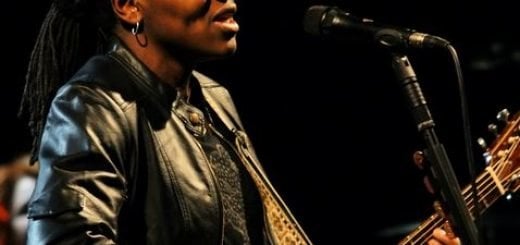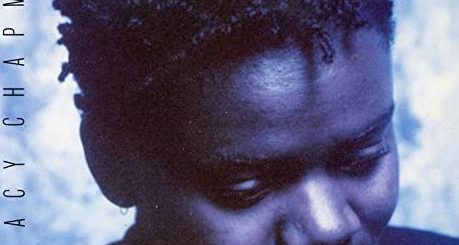Talkin’ Bout a Revolution by Tracy Chapman Lyrics Meaning – The Anthem of Social Change and Empowerment
Lyrics
They’re talkin’ ’bout a revolution
It sounds like a whisper
Don’t you know
They’re talkin’ about a revolution
It sounds like a whisper
While they’re standing in the welfare lines
Crying at the doorsteps of those armies of salvation
Wasting time in the unemployment lines
Sitting around waiting for a promotion
Don’t you know
They’re talkin’ ’bout a revolution
It sounds like a whisper
Poor people gonna rise up
And get their share
Poor people gonna rise up
And take what’s theirs
Don’t you know
You better run, run, run, run, run, run, run, run, run, run, run, run
Oh I said you better
Run, run, run, run, run, run, run, run, run, run, run, run
‘Cause finally the tables are starting to turn
Talkin’ ’bout a revolution
Yes, finally the tables are starting to turn
Talkin’ ’bout a revolution, oh no
Talkin’ ’bout a revolution, oh
While they’re standing in the welfare lines
Crying at the doorsteps of those armies of salvation
Wasting time in the unemployment lines
Sitting around waiting for a promotion
Don’t you know
They’re talkin’ ’bout a revolution
It sounds like a whisper
And finally the tables are starting to turn
Talkin’ ’bout a revolution
Yes, finally the tables are starting to turn
Talkin’ ’bout a revolution, oh no
Talkin’ ’bout a revolution, oh no
Talkin’ ’bout a revolution, oh no
When Tracy Chapman released the stirring anthem ‘Talkin’ Bout a Revolution’ in 1988, she unwittingly penned the soundtrack to a burgeoning awareness, an articulation of the frustrations and aspirations of the marginalized. The song, with its hauntingly simple melody and Chapman’s clear and resonant voice, served as a wake-up call, detailing the plight of the poor and disenfranchised. It spoke about the silent struggles that took place far from the glittering excesses of the 80s’ economic boom.
More than just a musical composition, ‘Talkin’ Bout a Revolution’ became a political statement, a hopeful cry amid the whispers of those who had long been overlooked. Through Chapman’s poignant lyrics, we are offered a window into an undercurrent of society yearning for change and equality. This introspective look at Tracy Chapman’s masterpiece will explore not just the overt calls for change, but also the deeper, more hidden meanings behind this timeless song.
The Whisper That Roared: Revolution in Repose
The recurring image of a ‘whisper’ throughout the song is a masterful juxtaposition to the loud and often violent connotations that come with the word ‘revolution.’ Chapman captures the essence of a movement growing beneath the surface, a simmer underneath that has yet to break into a full roar. Her choice of the word represents the concept that significant change often begins quietly, in the hearts and minds of individuals who have had enough of their dire circumstances.
This motif is further amplified by the gentle strumming of Chapman’s guitar, which mirrors the song’s low-key yet impactful message. It’s in the everyday scenes — the welfare lines, the unemployment queues — that the song finds its setting, giving these places a sense of latent power as the breeding grounds for societal transformation.
Rising Up from Poverty’s Ashes
Perhaps the most striking element of ‘Talkin’ Bout a Revolution’ is the unabashed declaration that ‘poor people gonna rise up / And get their share.’ It’s a reversal of the traditional, often defeatist narrative ascribed to the poor. Here, Chapman suggests a radical reclamation of power and agency by those who have been left out of the wealth narrative. It’s a message of empowerment and hope for the marginalized to take what is rightfully theirs.
The simplicity with which Chapman delivers these lines does not undermine their potency. On the contrary, it lends an air of inevitability to the revolution she is heralding — as if to say that the rise of the downtrodden is not a matter of if, but when.
A Run for the Hills or a Run Towards Justice?
The urgency in the repeated command to ‘run, run, run’ could be interpreted as a call to action or a signal to flee from the coming wave of change. It’s an adrenaline-inducing moment in the song, one that injects a sense of imminent consequence. This line beckons listeners to consider their place in the social hierarchy and questions whether they are contributors to the oppression or supporters of the impending revolution.
The layered meaning serves as a rallying cry to action. Chapman isn’t content to let the listener remain a passive spectator; she compels engagement and choice. With a history of social activism, her music doesn’t just entertain, it mobilizes.
The Table’s Dramatic Turn: Symbolism in Chapman’s Verse
The line ‘finally the tables are starting to turn’ is transformative, encapsulating the climax of the muted tension that has built throughout the song. Tables turning is a common metaphor for drastic change, suggesting an overturning of the status quo. This line is a promise and a prophecy. With its repetition, Chapman emphasizes the inevitability and the natural progression of the revolution, an echo of history’s many transformations.
This concept resonates deeply with listeners who feel downtrodden by life’s circumstances, and it’s a reminder that no condition is permanent. The revolution is not only external but also internal; it’s as much about personal growth and empowerment as it is about societal upheaval.
The Hidden Meaning: A Revolution of the Spirit
While the call for a socioeconomic upheaval is clear, there is a hidden layer in ‘Talkin’ Bout a Revolution’ that suggests a more profound, internal evolution. Chapman’s revolution speaks to a change of heart, a shift in consciousness that beckons a more compassionate and equitable world. It asks listeners to not just work toward changing their external reality, but to revolutionize the way they think, feel, and relate to one another.
The ‘whisper’ then becomes a metaphor for the quiet, often unnoticed acts of kindness and solidarity that contribute to a larger tapestry of change. Chapman isn’t just talking about a revolution in the political sense; she’s talking about a revolution of the soul. It’s this multifaceted depth that has allowed the song to transcend time, remaining relevant and powerful for generations.








